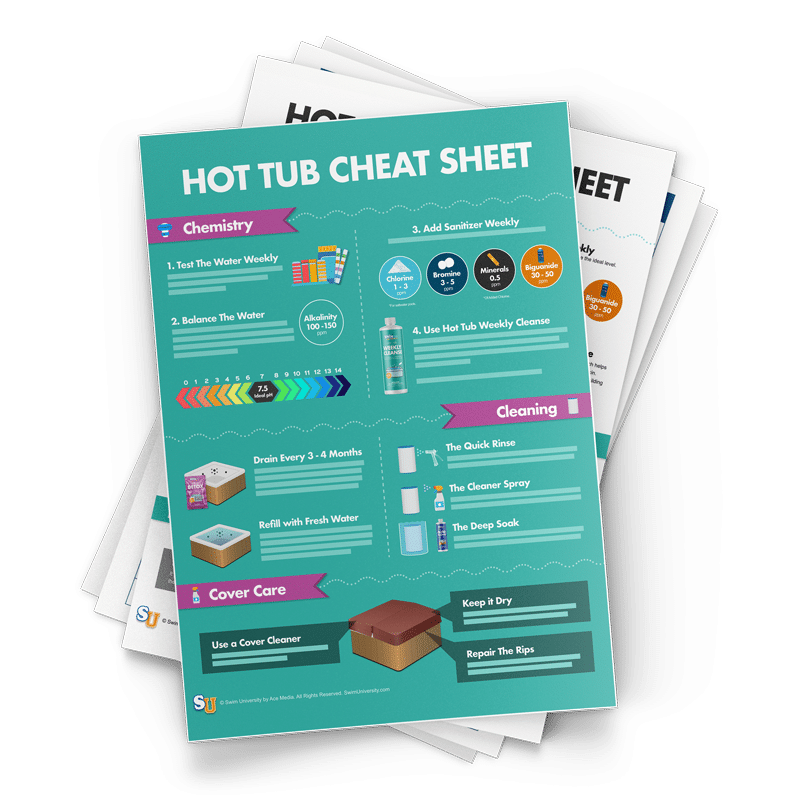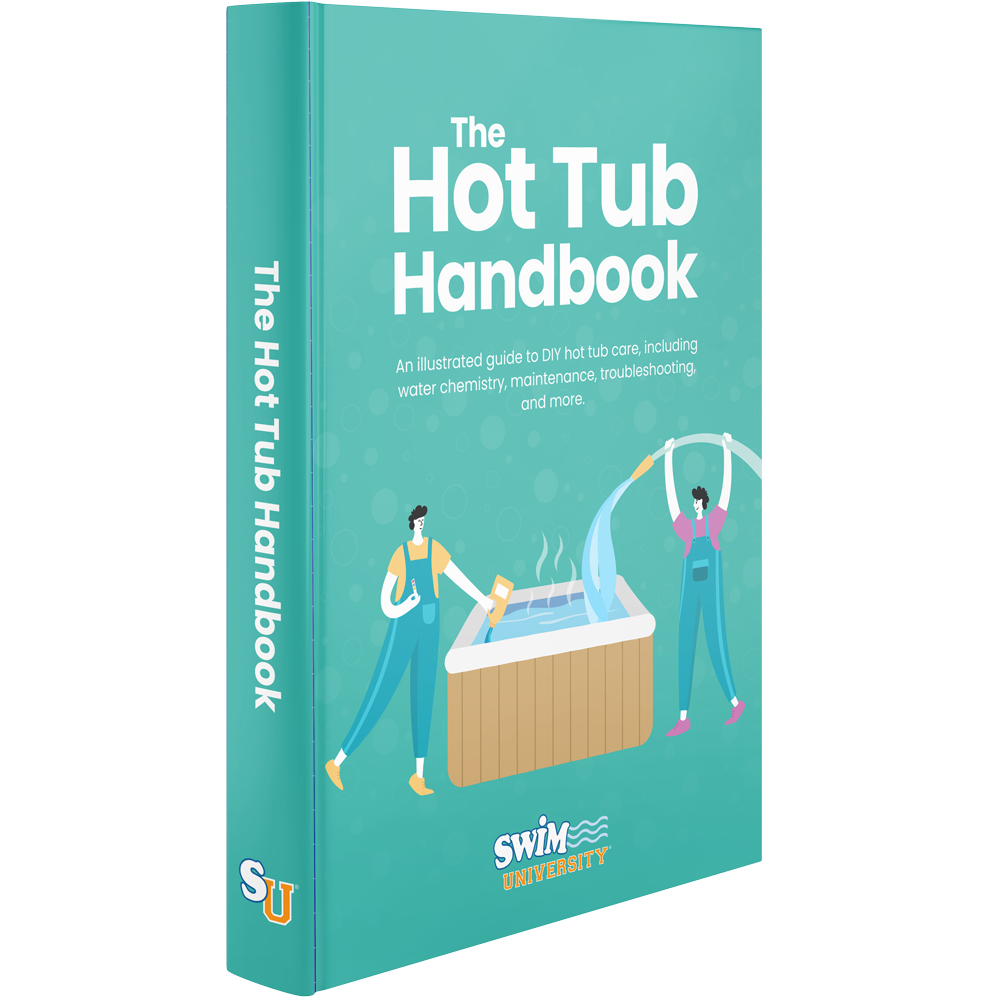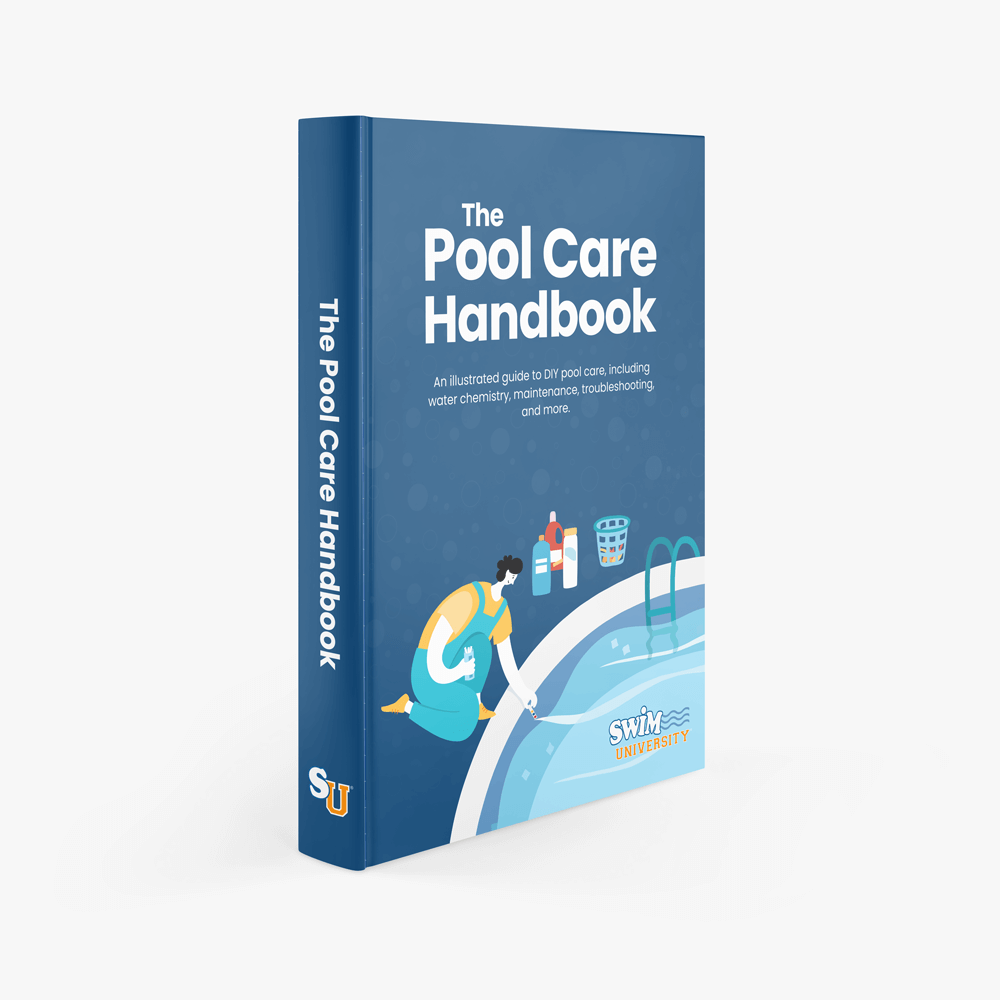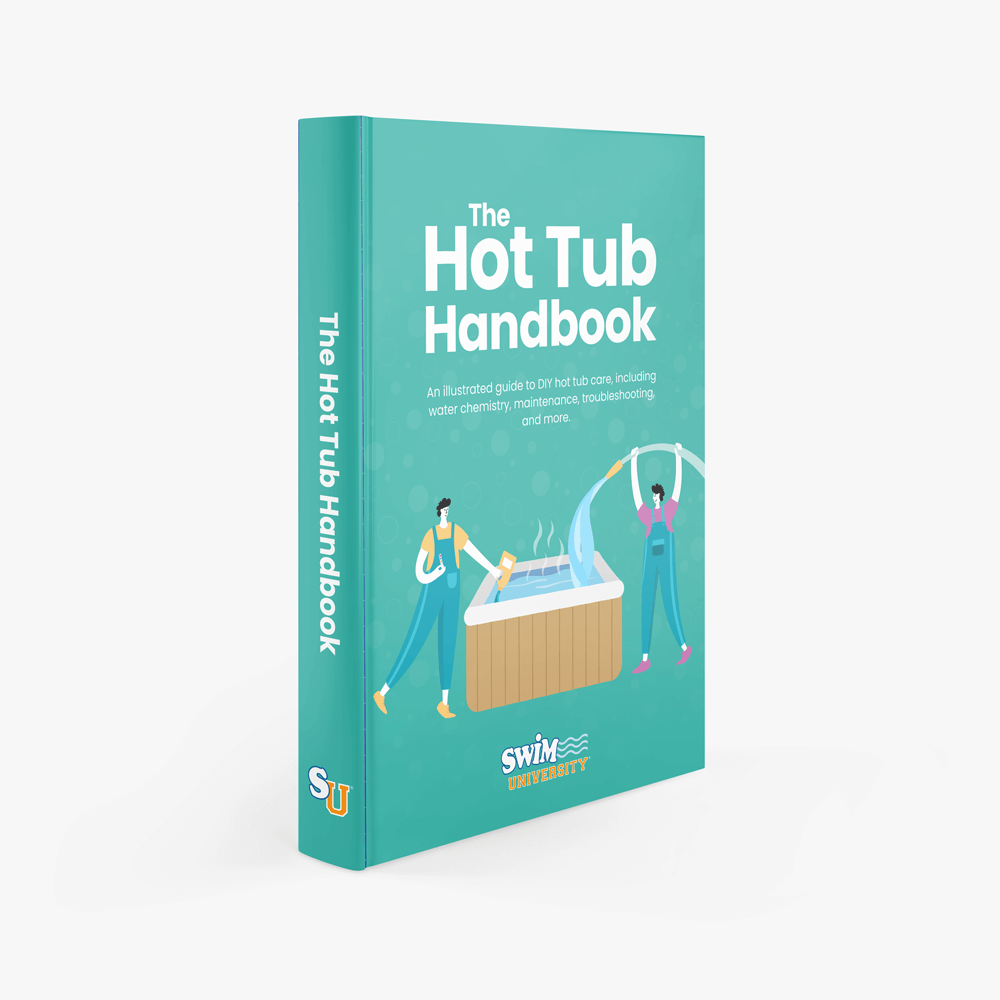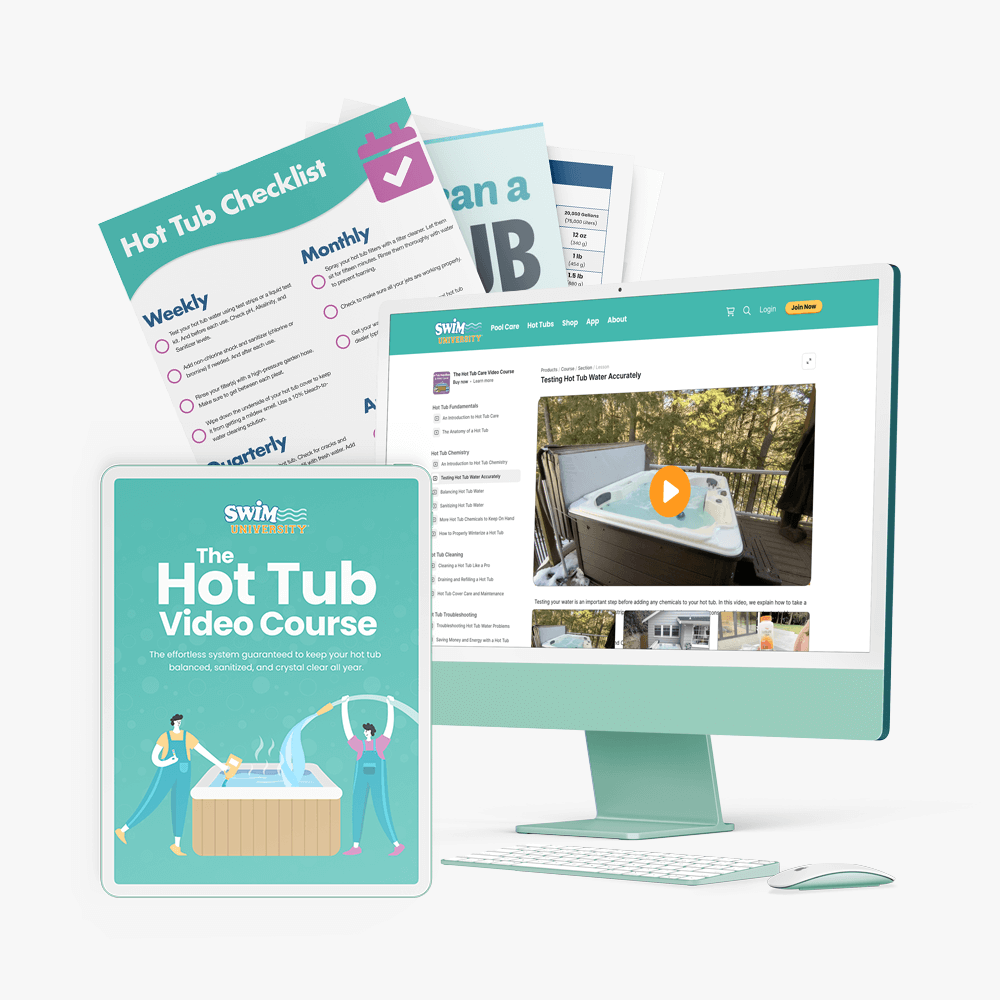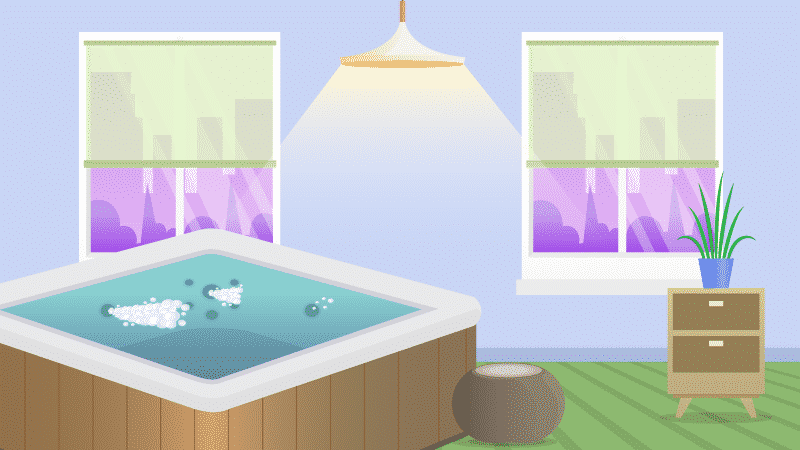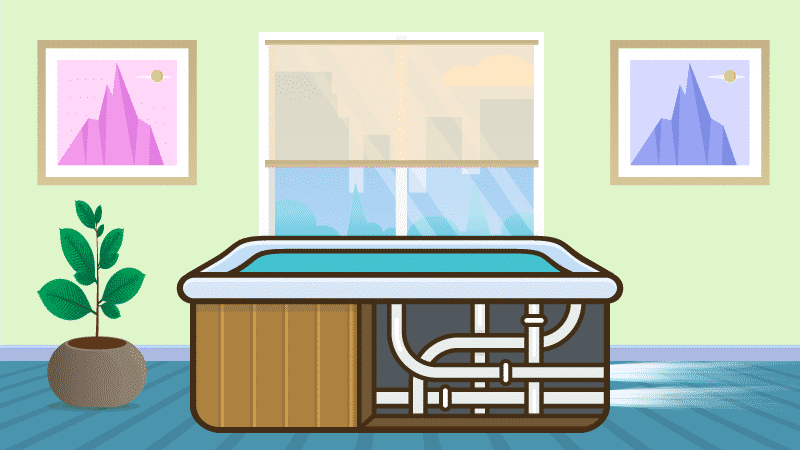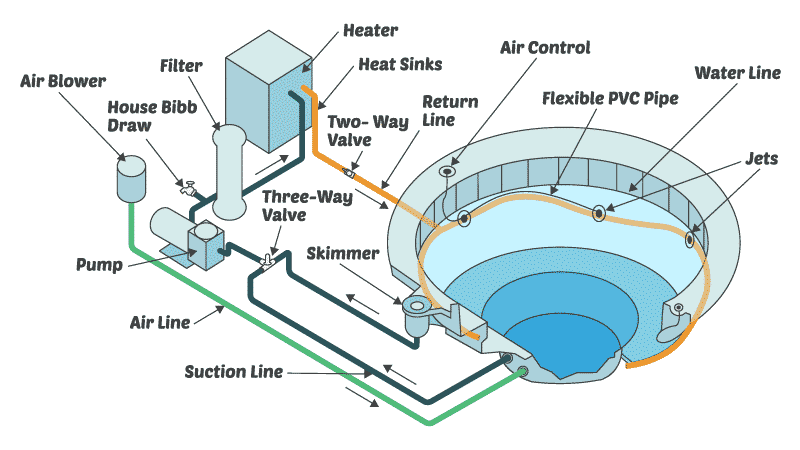How Much Does It Cost to Run a Hot Tub?
So you finally splurged on that hot tub you’ve had your eye on, huh? Congratulations! You filled it up, turned it on, cranked up the heater, and then made time for nice, long soaks after work and on the weekends.
And then you got your electric bill, and it was a bit higher than usual. Maybe a lot higher. Maybe you went through the house turning off all the lights and nonessential appliances. Before you made your purchase, you may have wondered, “How much does it cost to run a hot tub?” but thought you’d just figure it out as you went along. Well, now it’s time to make some adjustments so you can save money and energy, and go back to electric light instead of candles.
Learn how to keep your hot tub clear while saving money so you can enjoy more soaking time without big costs. The Hot Tub Handbook covers every type of hot tub on earth.
So Just How Much Does It Cost to Run a Hot Tub?
Good question! And we have the answer. Ready? Here it is:
It depends.
Yeah, bit of a letdown, isn’t it? Sure, it’d be nice if there were one definitive answer you could use to plan your hot tub maintenance and all the related expenses. But the truth is, how much it costs you to run your hot tub isn’t the same as it costs your neighbor, or someone in another city, state, or country. There are just too many variables.
The costs to run a hot tub depend on several factors.
- Hot tub make and model
- Hot tub age
- Local cost of utilities (water and electricity)
- Local sales tax (applies to supplies you purchase)
- How long you run your hot tub
- How often you run your hot tub
- How many people use your hot tub (higher bather load will require more chemicals)
- Whether you keep your hot tub covered
- Hot tub temperature you maintain
- Whether your hot tub is salt water
- How well you take care of your hot tub
- Whether you’ve upgraded any of your equipment for better efficiency
Typically, the cost to run an energy-efficient hot tub is about $1 per day or a $20-$30 increase in your monthly electric bill. However, if your hot tub is really old or not well taken care of, it could be up to $50 per month.
The good news is, though it’s impossible to pin down any exact hot tub costs, what is possible is using certain tactics to keep your hot tub maintenance expenses low, regardless of any of the variables.
Heat Up Your Hot Tub During Off-Peak Utility Hours
Electricity is often cheaper late at night or early in the morning when less people are using it. So you can save money on your energy bill by heating your hot tub up at night or early in the morning.
If your hot tub thermostat has a circuit timer, set this to heat your spa during off-peak hours.
Get and Use a hot tub cover
If you haven’t already invested in a good hot tub cover, that’s your first step to saving money and energy. You can get a good one for just a few hundred dollars, and you’ll make that money back in water, heating and chemical savings.
Putting a cover on your hot tub reduces evaporation, traps heat, and prevents chemicals from evaporating right along with the water. Keep all those things where they’re supposed to be, and you don’t have to replace them as often.
If you do have a cover, and it’s been sitting next to your hot tub getting dusty, clean it off, and start using it today to start the savings as soon as possible.
Finally, if you have a cover, and you do use it regularly, take a little time to inspect it and make sure it’s still in good condition with no tears or other damage that can affect its performance.
This premium hot tub cover, made of thick, marine-grade vinyl and with a weather-resistant design, keeps your spa safe from damage and helps you save money on heating costs.
Get and Use a Thermal Blanket
Wait, you just covered your hot tub, and now we want you to tuck it in with a cozy blanket too? Yup. Think of it as insulation.
A thermal blanket is just one more layer that will trap heat, prevent evaporation, and keep your hot tub chemicals where they belong—in the hot tub! It lies directly on the water, and under the cover, adding protection and efficiency.
Most thermal blankets also double as solar blankets, meaning you can lay them over the water of an outdoor hot tub, and use the sun’s power to heat the water so your heater doesn’t have to work as hard. Add a thermal blanket to your setup, and you should see a drop in your electric bill.
Using an extra thermal blanket underneath your existing cover during the winter will help your hot tub retain temperature, prevent freezing, and keep your energy bill down!
Block the Wind
If your hot tub is outdoors, you have a few extra things to worry about. Leaves and other debris falling into the water. Little critters going for a swim (unless you keep it covered). And wind. Seems pretty innocuous, but wind can have a noticeable effect on your hot tub.
The more the air above your spa moves, the more quickly the water will evaporate. Wind will also cool the water, making your heater have to work even harder to maintain the set temperature. There’s no danger of that while your hot tub is covered, but what about while you’re using it?
Create a windbreak around your hot tub with small bushes or a barrier screen. You can even make it part of your outdoor decor.
In everyday life, the room divider can be used in every aspect. Imagine if your home is an open kitchen, then a folding room divider between the living room and the kitchen is a great choice. You can also put it on the floor-to-ceiling window. The last screen can bring a more restful rest environment.
Set The Right Temperature
You may have heard that it’s cheaper to leave your hot tub running all the time. But it really depends on how often you use it and what temperature you keep it at.
- If you use your hot tub once a day, aim to keep your hot tub temperature around 95 degrees Fahrenheit (or 35 Celsius). You may want to increase the temperature before you get in, but keeping it at 95 degrees means you’re not wasting a lot of energy maintaining a high temperature. Just be sure to lower it down to 95 degrees after you’re done using it.
- If you use your hot tub every 2-3 days, you may want to keep it around 80 degrees Fahrenheit (or about 26 Celcius). You’ll still use less electricity if you keep it running, but you’ll also save money by not keeping it constantly hot.
- If you use your hot tub only once a week, you may want to consider turning it off between uses, so long as it’s not freezing outside. If you live in a colder climate, you’ll either need to keep your hot tub running 24/7 in the winter or winterize your hot tub if you’re not using it.
The maximum recommended temperature for a hot tub is 104°F (40°C), but that doesn’t mean you have to keep it there. Setting a lower hot tub temperature will save energy and money, and will reduce evaporation, thereby preserving the chemicals in the water.
Start with the average human body temperature of 98.6°F (37°C), and if it’s too cool, slowly notch the thermostat up until you’re comfortable. Use a floating thermometer to keep an eye on the temperature so it doesn’t get too hot. Then remember to use your thermal blanket and cover to help maintain that temperature between soaks.
Keep Your Spa Clean
This one really should go without saying, but we get it. It’s easy to become a little lax after a while, and go longer and longer between hot tub cleanings. The longer you go without cleaning your hot tub, the more body oil, dead skin cells, and bacteria you’re soaking in.
When your spa water is dirty, it affects the filtration system. It can also start to damage surfaces, and even create buildup inside the plumbing. Let all this go for too long, and you’ll be looking at a hefty bill to replace damaged parts. Keeping your hot tub clean keeps it in good working order, which will save you money.
While you do need to drain and clean your hot tub a few times a year (we recommend quarterly), it doesn’t have to be that intense every time.
Use hot tub cleaner on the shell’s top that surrounds the tub. Clean the pillows to keep them mildew free. And keep the cover clean to prevent debris or other yucky stuff from falling into the water when you cover it up.
More importantly, clean the hot tub filter regularly. Sometimes, all it’ll need is a good spray with the hose. But if it’s really dirty, use a filter cleaner to get more life out of it. When you can’t get the filter clean anymore, it’s time to replace it.
Our hot tub kit makes taking care of your water easy. It includes Hot Tub Weekly Cleanse, Detox, and Filter Cleanse to use every 3-4 months for deep cleaning.
Close Your Air Jets
How does your hot tub get all bubbly? The air jets! They blow air into the water, creating the bubbles that help ease your tired muscles while you soak. But when you’re not using your hot tub, and the jets aren’t on, they’re still a pathway for air to get into the tub, which can cool the water down. Cool it too much, and your heater will have to work twice as hard to bring the temperature back up to a comfortable level.
The solution is simple. Close the jets when you’re not using your spa. This will help keep cool air out, and help keep the water temperature steady. The less work your spa heater has to do, the less it’ll cost you in both electricity and wear and tear on your equipment.
Eco Smart Spa Heaters operate by utilizing the latest flow sensor technology instead of the traditional pressure switch activation and contactors to reduce the risk of burned elements, which increases functionality and reliability. The Smart SPA Series comes with a digital thermostat control so you can set the temperature exactly where you want. Eco Smart Spa Heaters are compact and easy to install for a new system or to replace any existing spa heater.
Conserve Water
Along with taking steps to reduce evaporation, you can be much more proactive in conserving water. The biggest way is to avoid splashout as much as possible. A hot tub should be fun and you should definitely enjoy it, but maybe save the splashing games for the pool where there’s more space, and less chance of water being lost and then having to be replaced.
Also, make sure the jets aren’t pointed upward where they could cause water to splash out.
Finally, keep an eye out for hot tub leaks. They can occur in the hot tub shell, in the plumbing, and in the connections for all the spa equipment, like the pump and filter. If you suspect a leak, track it down as quickly as possible, and repair it.
This adhesive can be used to assemble a wide variety of PVC products.
Upgrade Your Hot Tub
This may seem like a drastic measure, but it may also be necessary. Say you buy a house that already has a hot tub on the property. Bonus! Or is it? How old is the tub? Did the previous owners take care of it? What kind of condition is it in? If it wasn’t properly cared for, it may actually cost you less to replace it rather than try to refurbish it.
Or maybe it’s just that you’ve had your hot tub for a while now, and it’s time to upgrade to a more energy-efficient model. Newer spas are built to use less energy, and work better than ever before.
Before you buy a lot of accessories or make a lot of changes in an effort to save money, run the numbers and determine whether it may be more cost-effective to simply go with a new hot tub.
You Just Graduated Hot Tub Savings Training!
So now when your family and friends express interest in getting their own spa, and they ask you, “How much does it cost to run a hot tub?” you’ll be able to explain the cost factors to them, and give them advice on how to keep expenses low.
More importantly, you’ll be able to help them enjoy their investment even more because it won’t feel like a burden, and they won’t experience buyer’s remorse because they’ll be prepared. Just like you are!
Happy Soaking!
3 Ways We Can Help With Your Hot Tub
- Hot Tub Cheat Sheets (Free): Easy-to-use guides to help you keep your hot tub water balanced and sanitized.
- The Hot Tub Handbook: An illustrated guide to DIY hot tub care, including water chemistry, maintenance, troubleshooting, and more.
- The Hot Tub Care Course. You’ll get step-by-step videos and a step-by-step downloadable guide with everything you need to know about hot tub maintenance.
